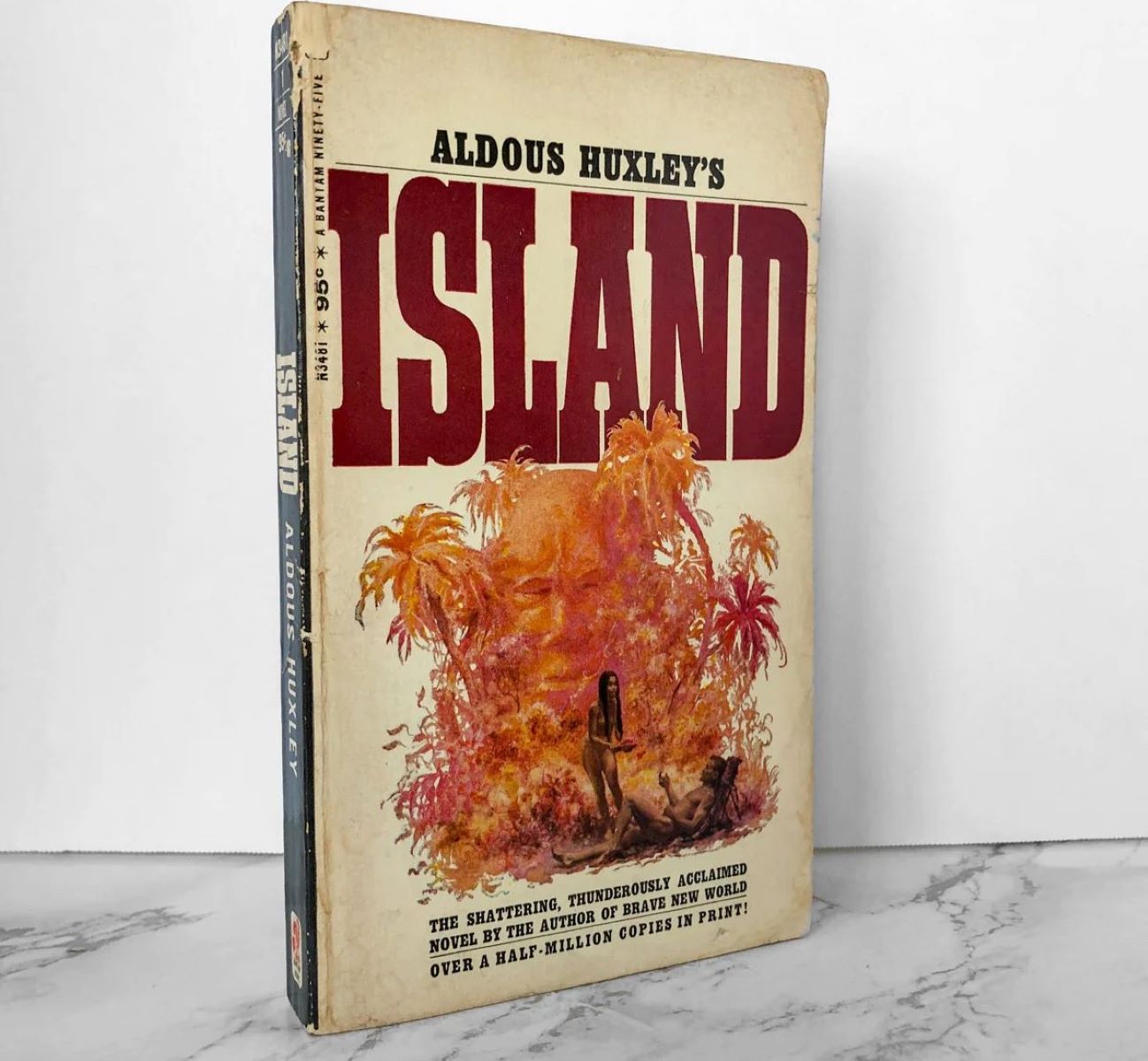
When it comes to the world of literature, few names evoke as much reverence and intellectual curiosity as Aldous Huxley. Known for his iconic dystopian novel “Brave New World,” Huxley’s literary contributions extend far beyond a single work. A lesser-known gem in his repertoire is the fascinating novel “Island,” published in 1962. Set in a utopian society, Huxley’s “Island” explores themes of spirituality, individualism, and social progress. In this article, we will delve into eight mind-blowing facts about Huxley’s “Island” that will surely ignite your interest in this thought-provoking work. So strap in and prepare to embark on a journey to an idyllic island where enlightenment, freedom, and the human spirit reign supreme.
Key Takeaways:
- “Island” by Aldous Huxley explores a utopian society on the fictional island of Pala, blending spirituality, sustainable living, and psychedelic experiences to envision a better world.
- Aldous Huxley’s final novel “Island” continues to inspire readers with its thought-provoking themes of utopia, sustainability, and spirituality, offering a hopeful perspective on societal structures and human nature.
Aldous Huxley’s novel “Island” was published in 1962.
One of Huxley’s lesser-known works, “Island” delves into the themes of utopia, spirituality, and societal criticism. Set on the fictional island of Pala, the novel explores an alternative society based on principles of individual freedom, sustainable living, and psychedelics.
The protagonist of “Island” is named Will Farnaby.
Farnaby, a journalist who crash-lands on Pala, serves as the audience’s entry point into the island’s unique culture and philosophy. Through his experiences and interactions with the islanders, the readers gain insight into the contrasting ideologies and the potential for a better world.
“Island” incorporates elements of Buddhism and other spiritual practices.
Huxley, known for his interest in spirituality and mysticism, incorporates various Eastern philosophies into the narrative. The islanders’ approach to life emphasizes mindfulness, meditation, and a deep connection with nature.
The fictional language “Rama” is spoken on the island of Pala.
To add depth and authenticity to the island’s culture, Huxley created a unique language called “Rama.” This linguistic invention further immerses the readers into Pala’s distinct society and its rich cultural heritage.
“Island” explores the intersection of science and spirituality.
Huxley raises thought-provoking questions about the role of science in society and its potential to enhance or hinder human progress. The novel contemplates the ethical implications of scientific advancements while advocating for a balanced integration of scientific knowledge with spiritual wisdom.
Huxley’s own experiences in the island of Pala heavily influenced the novel.
Before writing “Island,” Huxley had visited the real-life island of Palau, which served as a source of inspiration for Pala. His observations and interactions with the island’s inhabitants shaped the themes and ideas explored in the book.
“Island” was Huxley’s final novel.
Published just a year before his death, “Island” is considered Huxley’s ultimate literary work. It serves as a culmination of his philosophical ideas, social commentary, and visionary imagination.
“Island” continues to inspire readers with its vision of a better world.
Decades after its publication, “Island” remains relevant, offering a thought-provoking and hopeful perspective on societal structures, human nature, and the potential for positive change. Its themes of utopia, sustainability, and spirituality continue to resonate with readers around the globe.
Conclusion
In conclusion, exploring the lifestyle of Aldous Huxley’s Island is an intriguing journey into a world of mind-blowing facts. From the utopian society of Pala to the philosophical musings on freedom and happiness, Huxley’s novel invites readers to delve into profound ideas and challenge conventional societal norms.
Through his vivid descriptions of the island and its inhabitants, Huxley paints a picture of a harmonious and conscious community that strives for personal growth and collective well-being. The integration of Eastern and Western philosophies, the emphasis on mindfulness, the use of psychedelic substances for spiritual enlightenment, and the exploration of alternative forms of governance make Island a thought-provoking read.
Whether you are a fan of Aldous Huxley’s works or simply curious about utopian literature, exploring the mind-blowing facts about Island offers a unique perspective on the possibilities of creating a more harmonious and conscious society.
FAQs
1. What is the main concept behind Aldous Huxley’s Island?
The main concept behind Aldous Huxley’s Island is the exploration and portrayal of a utopian society called Pala. The novel delves into the integration of Eastern and Western philosophies, the pursuit of mindfulness, and the concept of living in harmony with nature and one’s inner self.
2. How does Huxley present the idea of freedom and happiness in Island?
Huxley presents the idea of freedom and happiness in Island by allowing the characters to experience personal freedom while still adhering to the principles of community and collective well-being. The novel explores the concept of finding happiness by embracing individuality and connecting with the natural world.
3. What role do psychedelic substances play in Island?
Psychedelic substances are used in Island as a means for spiritual enlightenment and self-discovery. Huxley portrays the controlled and responsible use of these substances as a tool for expanding consciousness and opening doors to new perspectives.
4. Does Island offer any political commentary?
Yes, Island offers political commentary through its exploration of alternative forms of governance. Huxley presents a contrast between the utopian society of Pala and the dystopian world outside, highlighting the flaws and limitations of conventional political systems.
5. Is Island a standalone novel or part of a series?
Island is a standalone novel by Aldous Huxley and is not directly connected to any other works.
Was this page helpful?
Our commitment to delivering trustworthy and engaging content is at the heart of what we do. Each fact on our site is contributed by real users like you, bringing a wealth of diverse insights and information. To ensure the highest standards of accuracy and reliability, our dedicated editors meticulously review each submission. This process guarantees that the facts we share are not only fascinating but also credible. Trust in our commitment to quality and authenticity as you explore and learn with us.
